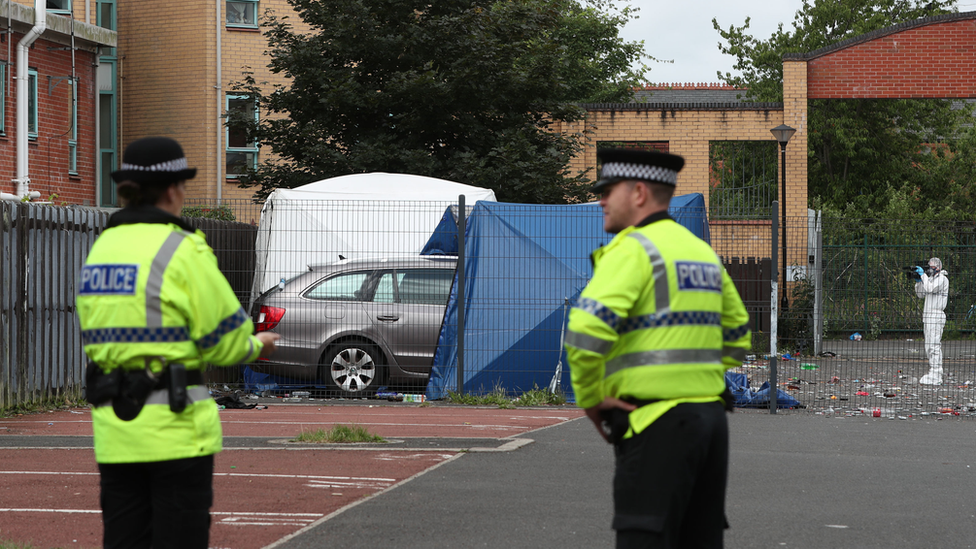Manchester shooting: 'Please help catch my husband's killer'
- Published
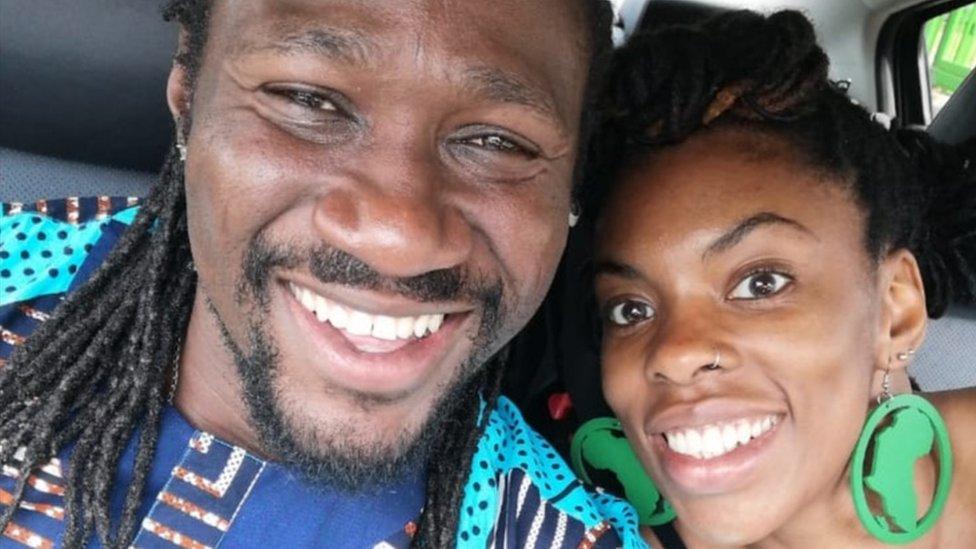
Abayomi "Junior" Ajose loved nothing more than spending time with his family.
Afrobeat tunes would be on in the background as he spent hours playing a classic Nigerian card game with his three kids.
"There was always music in the house and he loved dancing," his wife Lola says. "He had this move that no-one could do.
"Even when I'm home now and a certain song comes on, it just makes me smile to remember how he was dancing in the house and the kids trying to copy his moves."
On 21 June 2020, Junior, 36, and another man - 21-year-old Cheriff Tall - were shot dead in a crowd of 400 people in Moss Side, Manchester.
Six months on, their killer still hasn't been caught.
I meet Lola at the headquarters of Greater Manchester Police on a typical cold, rainy day in the north-west.
She is softly spoken but her face lights up when she recalls memories of her husband.
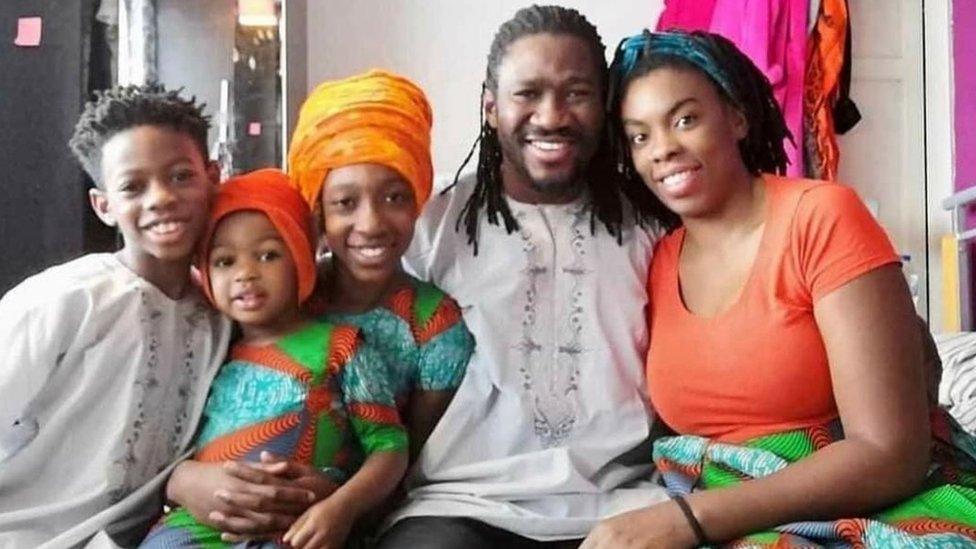
Junior and Lola had three children together
Lola and Junior - who was a children's social care worker - met 13 years ago. He was a customer at the KFC where she worked in Gorton, Manchester.
"One time he came on the drive-thru and asked for my number," Lola recalls. "We just started talking and things went fast.
"He did say to one of his friends the first time he saw me that he was going to marry me. He would always bring it up. He just knew."
Lola was in her second year at university when the couple found out they were expecting a baby.
Junior stayed at home with their daughter so his wife could go back and finish her studies - and the couple went on to have two more children.
"He loved to take the kids out and have fun with them," Lola says. "He used to do boxing so he would train them and just make the house fun when the kids were around.
"He worked a lot but always made time for the kids. He felt bad if he had to be away from them for too long."
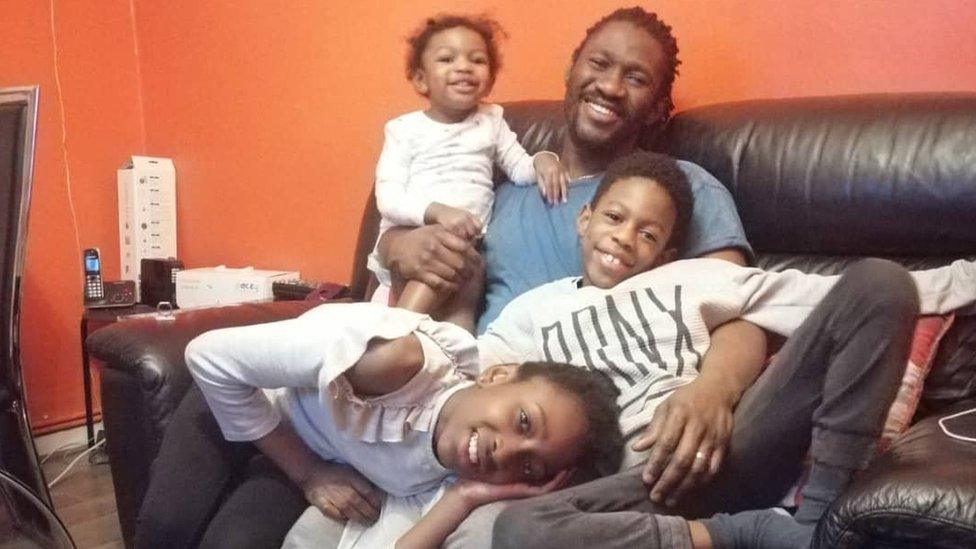
"He loved to take the kids out and have fun with them," Lola says
On the day Junior died, he had taken his children to an organised community event in Moss Side, Manchester.
"He kept video calling me and showing me our eldest dancing in the dance competition. I think she came third and he just looked so happy," Lola tells me.
Around 20:00, he brought the children back home and told his wife there was an after-party - which he went to with his best friend and Lola's brother.
A few hours later, Lola got a call from her brother telling her Junior had been shot and she needed to get to the hospital.
She got her dad to come and look after the children but at that point she says she wasn't "thinking the worst".
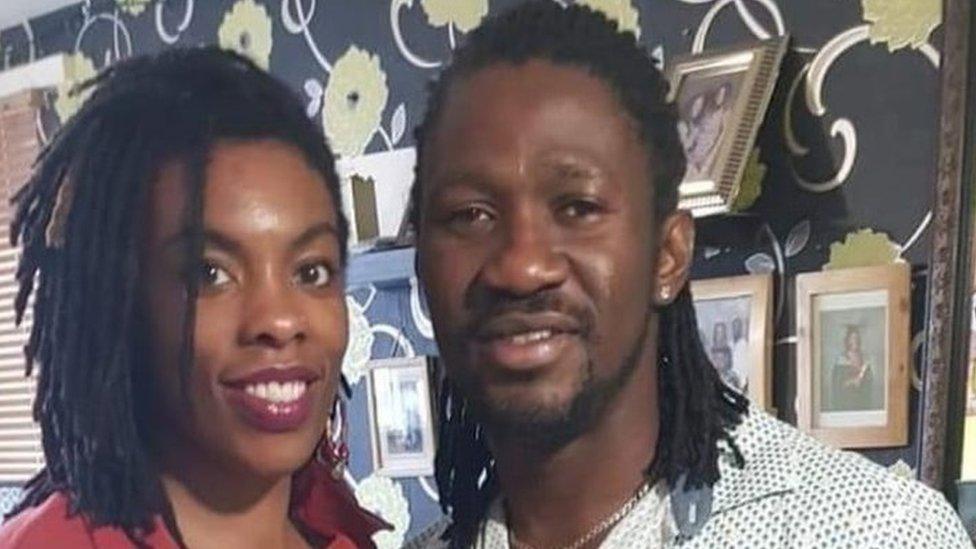
Lola and Junior met while she was working at KFC
When Lola recalls getting the news her husband had died, it's the first time her voice quivers. Her eyes fill with tears and I can hear the pain as she speaks.
"We were on our way to the hospital and then I got a call to say he had passed away," she says. "I think I passed out in the car because I could hear my mum saying, 'Are you OK?' and the phone had dropped on the chair.
"And I was like, 'He's gone'. That was horrible. It felt like a nightmare."
I really admire the strength it takes to sit and talk to a stranger about the murder of your husband - but Lola wants his killer brought to justice.
Junior was shot at a party which was held during the first coronavirus national lockdown. It's estimated around 400 people were there.
Lola says she just thought the party was carrying on from the daytime event so it "didn't feel like anything was wrong with him going".
At the time, the police defended their decision not to break-up the party - saying it would've been "unachievable to safely disperse" the event given its nature and the number of people there.
"We have to take into account public disorder and the risk of confrontations with people," Supt Mark Dexter said.
Footage shows the crowd at the event before the double shooting
I spent quite a lot of time in Moss Side as a kid and never felt unsafe playing on the streets with my cousins and friends.
But at one time the neighbourhood had the nickname of "Gunchester" due to its history of gang and gun crime
Things have improved in the area over the past 20 years. But when a murder like this happens, there are some who assume the victims were involved in crime.
Lola tells me even some family members - who didn't know Junior well - questioned whether he was part of a gang.
It's been reported that Junior was acting as a peacemaker when he was killed - something his family say he was known for.
It's one of the reasons Lola decided to speak to the BBC about her husband shortly after his murder.
"I didn't want his name to go out like that because I knew that he wasn't in a gang. He was a hard-working guy, he wasn't in any trouble. I've known him for 13 years and he wasn't that kind of person.
"People are going to say that and I've tried not to let it affect me. But I feel like I changed his name when I went on the BBC to say that he was a family guy."
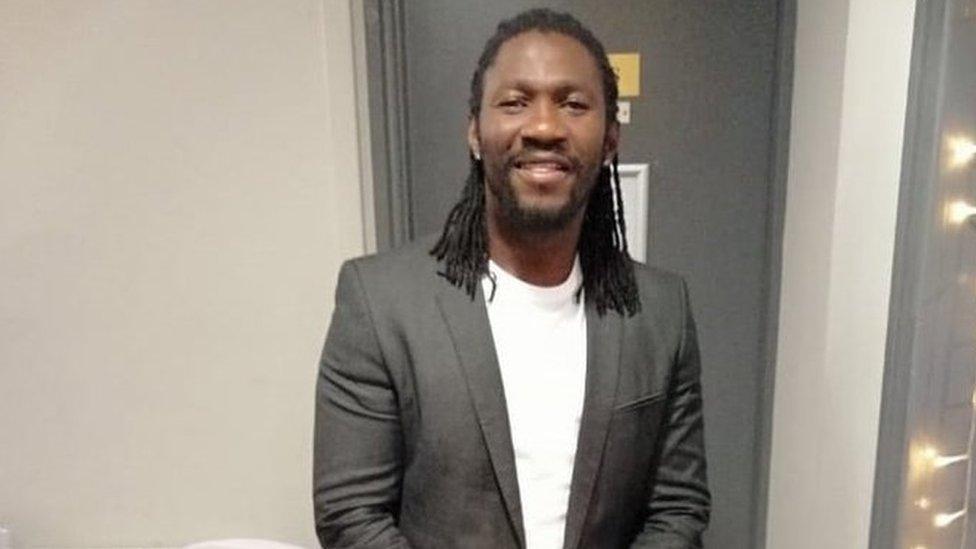
Junior worked for the children's services at Manchester City Council
The police believe Junior's killer is from Birmingham and say he knows they're trying to track him down.
"We need to get hold of this person as soon as possible because obviously it's a very dangerous individual," says Det Ch Insp Stuart Wilkinson, who is leading the murder investigation.
"Anyone who's prepared to shoot and kill two people in front of 400 people clearly needs to be taken off the streets."
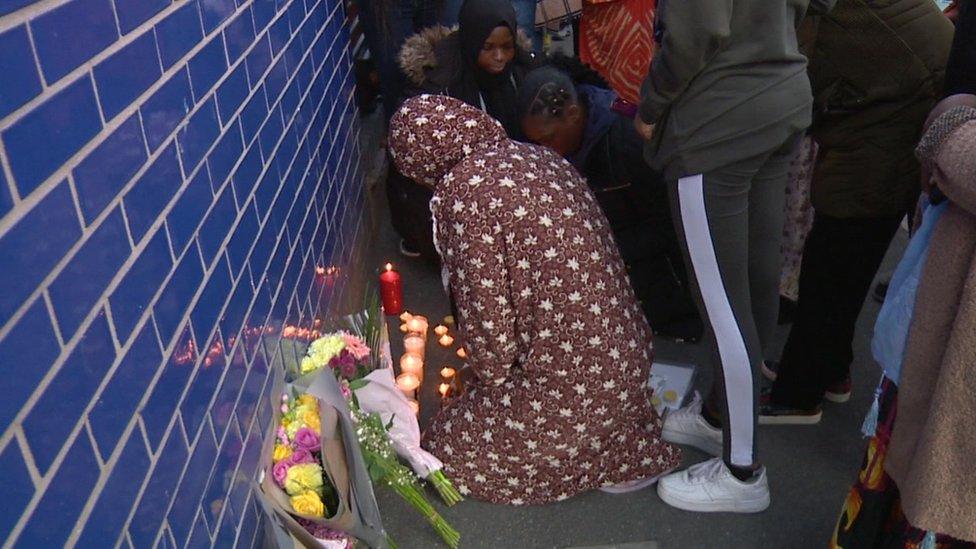
Candles and flowers were left at the scene of the shooting in memory of the victims
Mr Wilkinson told me the biggest challenge of the investigation so far has been gaining the confidence of the witnesses and the local community.
Police have spoken to about 350 people who were at the event - but have struggled to get people to give official witness statements.
I've heard it described as a "wall of silence" and I do wonder whether recent and historical events may have played a part in this.
Next year, will mark 40 years since the 1981 Moss Side riots, which saw tensions between the community and police erupt into three nights of trouble.
Conversations around the death of George Floyd and the Black Lives Matter movement in 2020 have also highlighted the often difficult relationship that exists.
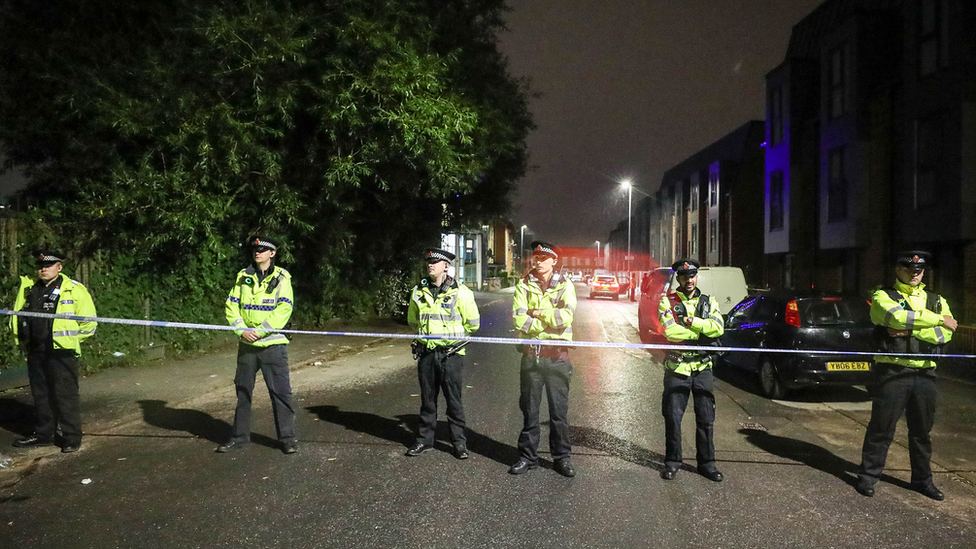
There was a heavy police presence overnight after the shooting in June
In September, police officers from Greater Manchester were interviewed on Legacy - Manchester's black community radio station.
It was an honest and frank discussion about the concerns of the black community - issues like coronavirus, stop and search, and the rules around the police use of Tasers.
But the most stand-out thing for me was when they spoke about the murders of Junior and Cheriff - with the presenter saying "it's gone back to the mentality and the way that it used to be with the community".
The officer being interviewed said there had been a "decline" in relations over the last 10 years and it was a "priority" to re-engage with the black community.
Mr Wilkinson told me the community has "opened its door" to police investigating Junior's murder - but people are "scared" to give formal evidence.
Allow Facebook content?
This article contains content provided by Facebook. We ask for your permission before anything is loaded, as they may be using cookies and other technologies. You may want to read Meta’s Facebook cookie policy, external and privacy policy, external before accepting. To view this content choose ‘accept and continue’.

Two people - a 25-year-old man and a 32-year-old woman - were arrested in connection with the murder and have been released under investigation while enquiries continue.
Mr Wilkinson says the identity of the prime suspect is out there in the communities of Manchester and Birmingham - and a big boost to the investigation would be to find where he is.
His identity has not been released to the public at this stage while other police work is carried out on the case.
Police have urged witnesses to come forward so they can discuss what measures can be put in place to give them the confidence to give evidence.
"Please just put yourself in the shoes of the family who are going through a devastating time," said Mr Wilkinson.
"It's really bad enough for them to accept the fact their loved ones have been murdered. And then they're going to have to start trying to process the fact that people are not prepared to step up and give evidence in court to get this killer off the streets and give them justice."
Justice is something Lola desperately wants for her husband.
It's clear the last few months have been really tough on his family - especially his children.
"They're so resilient but I know they miss him," Lola says. "He played a big part in their lives. My youngest she just says, 'I want Daddy'. She says it at least 20 times in the day. My son has had a few panic attacks and he's been inside himself in a way."
But Lola says her children are "strong-hearted" - just like their dad - and they're the ones that are keeping her going.
She describes Junior's killer as "heartless" and says it makes her feel angry that he's still out on the streets.
"I feel like he's gonna get caught eventually. He can't be alright with himself knowing that he's done this," she added.
Lola says it's frustrating that some people are reluctant to come forward with information but understands they're "probably really scared" and hopes someone will step forward and help her family get the closure they need.
"My life has changed totally because of what's happened," she says.
"Don't be scared to come forward and give your information because it's gonna help a lot with me and my family, especially the children. We all need that justice."
Follow Cherry on Twitter, external

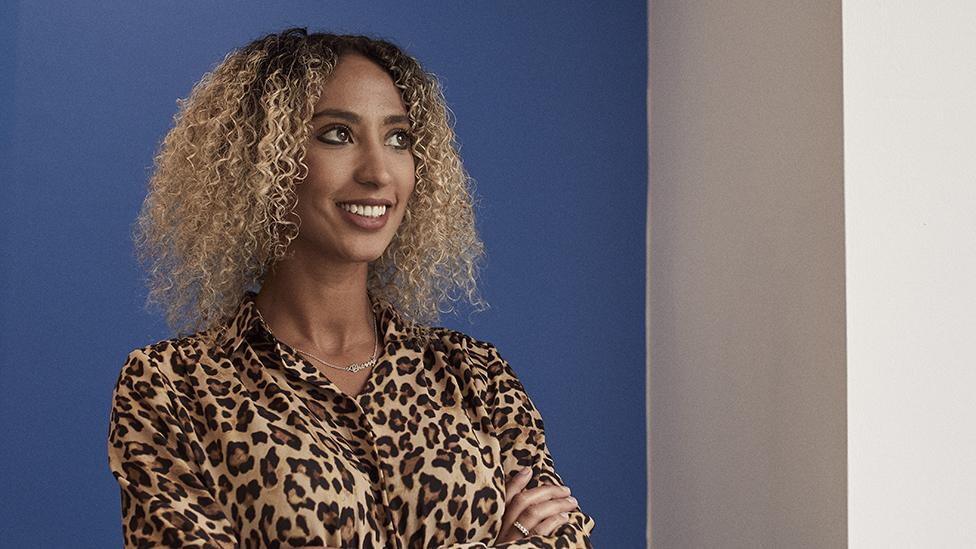
Cherry Wilson is a proud northerner who lives in Stockport, Greater Manchester, where she grew up.
She studied journalism in Sheffield and was the first in her family to go to university. Her passion is telling the stories of the people and communities behind the headlines, exploring issues that matter to them. She has a great love for cups of tea, jerk chicken, chips and gravy and Coronation Street.
- Published23 October 2020
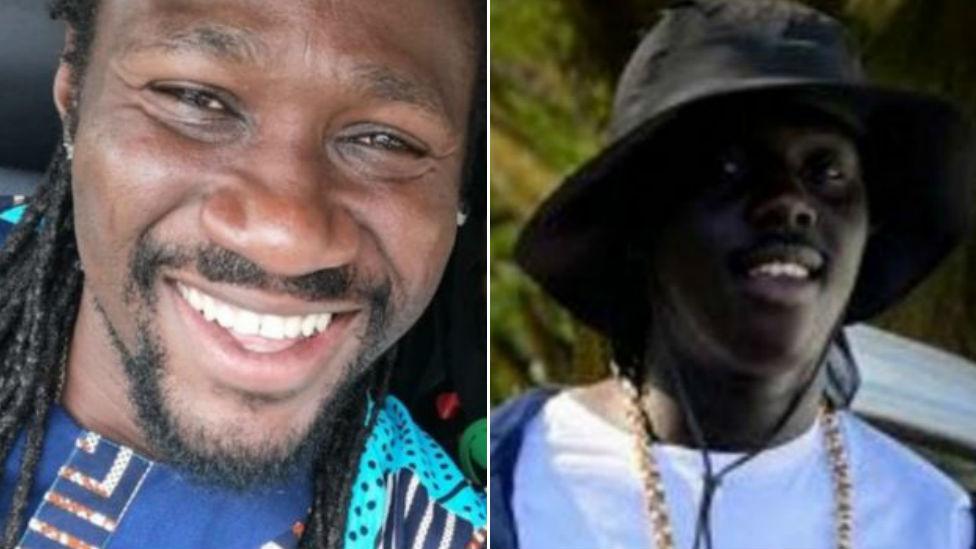
- Published23 September 2020

- Published24 August 2020

- Published30 June 2020

- Published22 June 2020
